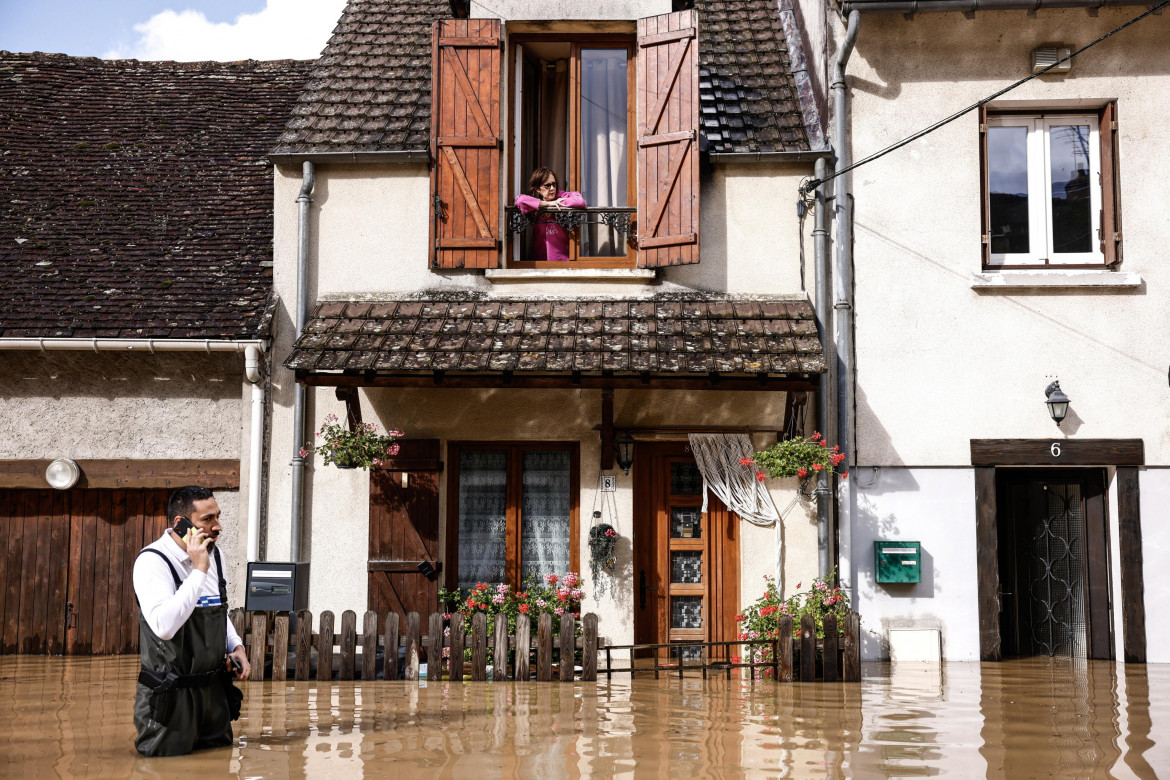Commentary
Italy is sinking but the tide of denialism is rising
Abandoning the fight against global warming is the wrong decision, because climate ungovernability has consequences that are just as devastating as war. It is possible to build up the environmentalist alternative. And we are not starting from square one.

By this point, in Emilia-Romagna, people live from one weather warning to the next. It doesn’t take long to realize that this reality is not in fact “temporary” and “exceptional,” as the diehard climate deniers are saying, but the now-ordinary and long-term climate in which we’re going to live. This situation, taken for granted today, could be made less extreme by implementing the measures that scientists have long called for.
Instead, for years there has been widespread denial of the role of humans in causing climate change, and as a result, nothing has been done to reduce climate-altering emissions (or, at most, a little greenwashing). So we will have to resign ourselves to living with a climate that is already marked by alternating heat waves and dry spells followed by rains that dump as much water in a few days as in the previous six months.
And the word “resign” is indeed the most appropriate here: those who are governing Italy, and those who have governed it in the past, have not managed to put forward a plan to adapt to the new climate situation, let alone take action to mitigate the speed of the changes. But resignation is not a requirement, especially for decision makers: action can still be taken against the ungovernability of the climate to make people's lives safer, by following the prescriptions that science offers and containing global heating to within 1.5 degrees by 2050.
Many say, and with good reason, that the Meloni government has forgotten the people affected by floods or summer heat waves. But the real elephant in the room that has been forgotten in the government's policies is the fight against climate change. Nor has the opposition visibly united on the issue of climate defense in order to propose an alternative.
Just as Traversara, a small town in the Faenza area, was being flooded for the second time in a year, Meloni spoke at the Confindustria summit and, to the applause of business leaders, reiterated her commitment to fight ideological environmentalism and shut down the ecological transition. With such policies, people in Europe will have to live with the consequences of using gasoline- or diesel-powered cars, living in poorly-insulated homes that waste a lot of energy, eating food produced by an agricultural sector dependent on chemicals and meat from intensive livestock farms that are both cruel to animals and deliver very poor quality meat, and burning methane for their energy needs instead of using the great resource that is the sun.
This line doesn’t come only from Meloni and the black wave rising across Europe: it is also coming from von der Leyen's new European commission. In the last month, all of Europe has been hit by severe flooding, but making the choices needed to secure the affected territories have been postponed for better times. The European green plan, NextGenerationEU, already modest in its goals, is being further downsized, and the reasons for this turn are visible to all. Right now, the planet is dotted by wars and conflicts that are dragging humanity towards a world war. As a result, those in power are only thinking about how to arm themselves more and more, and certainly not about the changing climate.
Abandoning the fight against global warming is the wrong decision, because climate ungovernability has consequences that are just as devastating as war. War and climate chaos have as their common denominator the fact that if they can’t be stopped, they can lead to the extinction of the human species.
A new renewable energy model – a crucial choice that needs to be made to reduce emissions – could make a contribution to peace as well. The fossil fuel system has been, and remains, a leading cause of wars, while the sun and wind and other renewable energy resources are widespread across the planet and no one can claim exclusive ownership over them.
It is possible to build up the environmentalist alternative to the right-wingers if we take the step of criticizing the Mattei plan being pushed by the Meloni government and the choices made by von der Leyen. Of course, in order to successfully put this goal at the center, this is something that has to be built over time. The aim is to grow support for it at the local level, starting in Emilia-Romagna, with summits, alliances, projects and organizational networks.
We are not starting from square one: there is already a well-developed environmentalist NGO sphere, with such names as Legambiente, Fridays for Future or Extinction Rebellion, and even more: there is ARCI, there are entire sections of the CGIL union, starting with SPI, which has already set up networks such as La Via Maestra, or the FIOM union, committed to a new model of mobility. This can be the starting point, by beginning to unite the forces present and to experiment with climate mitigation and adaptation plans in the flooded territories.
At its core, mitigation is based on the construction of a new 100%-renewable energy model. And adaptation means no longer being afraid to envision relocation, stopping the consumption of land, practicing a circular economy.
These are just words at this point, because these aims must be built together with the local inhabitants of these territories. And we could already be talking about them in the Emilia-Romagna regional election campaign.
Originally published at https://ilmanifesto.it/il-territorio-affonda-e-il-negazionismo-sta-a-galla on 2024-10-13
